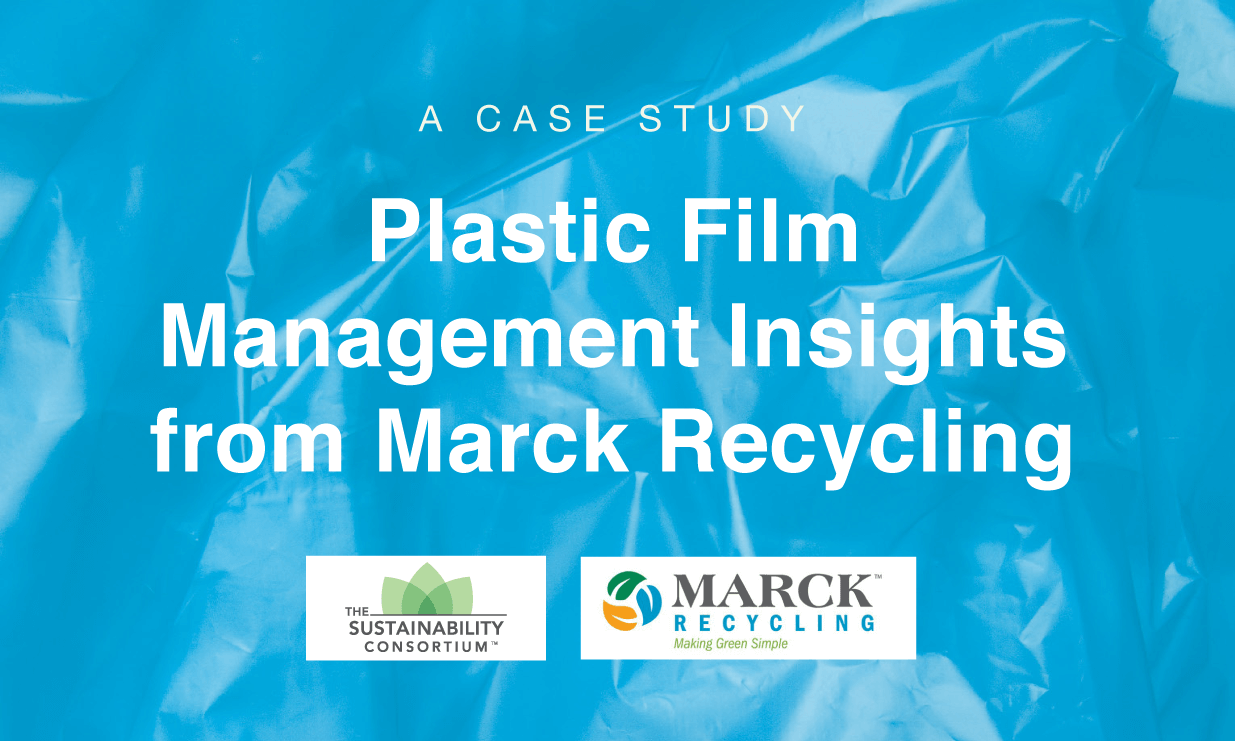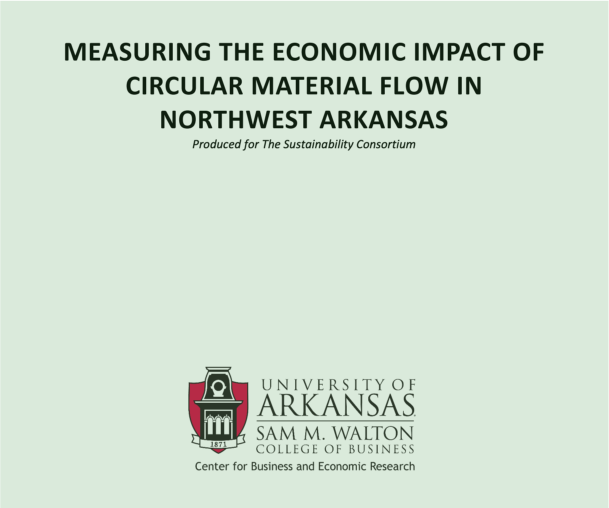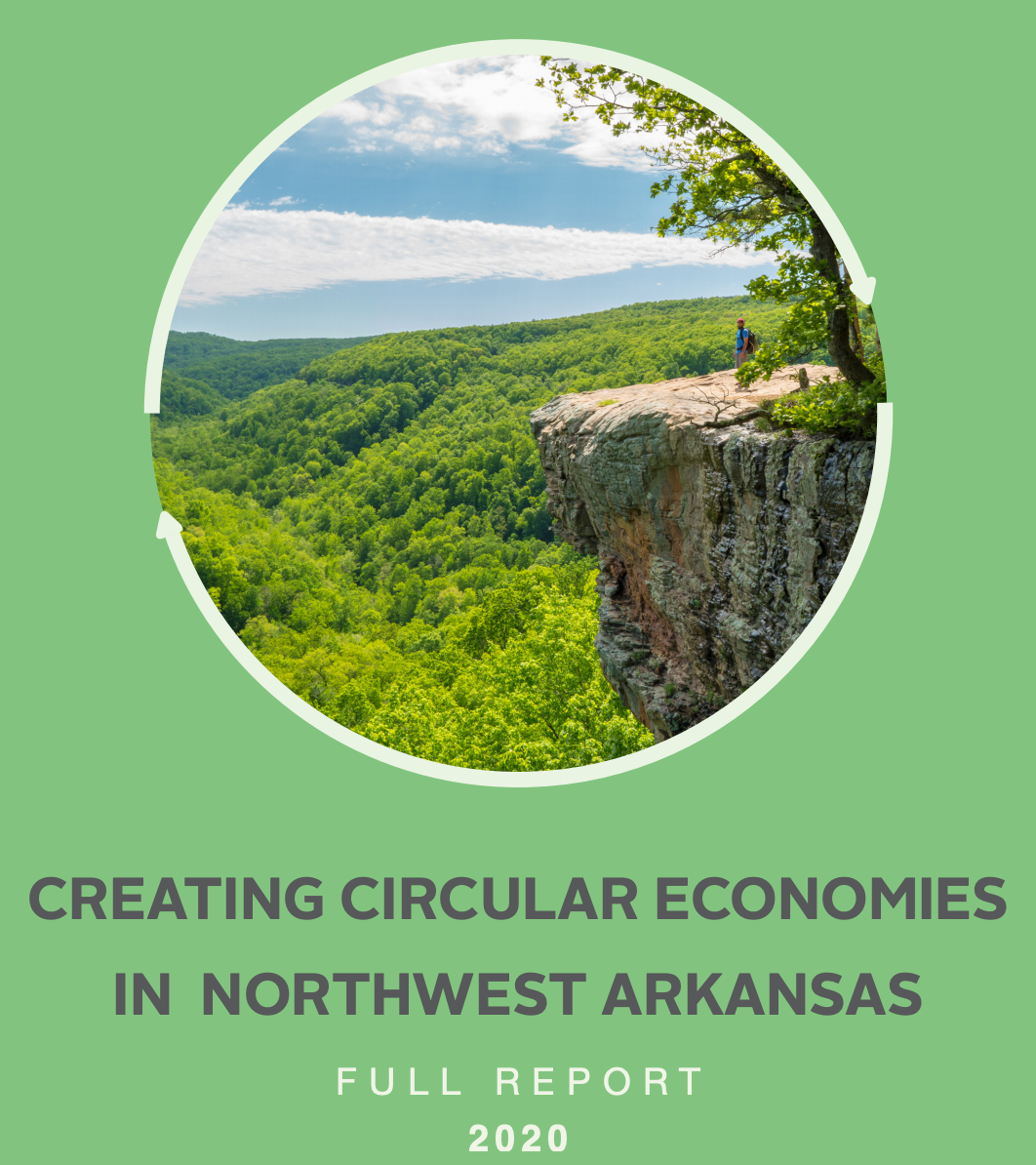CIRCULAR INNOVATION HUB
KAITEKI PROJECT
The Global Kaiteki Center at Arizona State University has sponsored a project with the Rob and Melani Walton Sustainability Solutions Service, The Sustainability Consortium, and The Ohio State University to work together with the Mitsubishi Chemical Holdings Company on creating a more circular economy for plastic.

The goal of this current project is to develop innovation roadmaps for the chemical industry that facilitate it towards a more circular economy. In the project’s first year, we have identified over 150 different innovations across the plastic packaging value chain that help plastic packaging be more circular. The project has engaged TSC stakeholders to provide feedback on the innovations discovered. In 2020, the project will combine best available science with mathematical modeling to develop roadmaps.
Innovations from a number of TSC members were noted during the research. Here are some examples:
- The New Plastic’s Economy Global Commitment initiative is a platform for corporations to make public pledges on the circular economy goals for plastic and plastic packaging. As of March 2020, these TSC members had made commitments: Clorox, Colgate-Palmolive, Henkel, Johnson & Johnson, Mars, M&S, Pepsico, Tetra Pak, Unilever, and Walmart.
- Unilever is collaborating with start-up company Ioniqa and PET resin producer Indorama Ventures to apply a new technology which converts PET waste back into virgin grade material for use in food packaging. [Link]
- Colgate-Palmolive, Clorox, Kroger, Proctor and Gamble, Unilever, and Walgreens are working with Loop Industries to help launch reusable packaging for food and personal care consumables. [Link]
- Amazon, Bayer, Campbell Soup, Church & Dwight, Clorox, Colgate-Palmolive, Fruit of the Loom, Georgia Pacific, Hanes, Henkel, J.M. Smucker, Johnson & Johnson, Ocean Spray, Pepsico, Proctor & Gamble, Unilever, Walgreens, and Walmart are members of the How to Recycle program, which has developed an innovative packaging label to communicate proper disposal or recycling instructions. [Link]
- BASF has created ecoflex®, a fossil fuel based polymer, that is certified as compostable. [Link]
WASTEWATER 101 TOOLBOX
In 2019 TSC’s Wastewater Challenge task force launched the Wastewater 101 Toolbox, an interactive database of resources for improving wastewater treatment that allows users to pull curated packets of information relevant to their need and role in the industry. Initially focused on textiles, the scope of this project has been expanded to include all industrial sectors and work is underway to build out the functionality of the toolbox and generate new tools and resources that help fill gaps in knowledge and incentivize treatment.
From cars, to clothes, to medical supplies to food: most aspects of modern life rely on the manufacturing sector. These vital supply chains, and the communities in which they are located, are experiencing growing risks due to their dependence on local watersheds and the complicated intersection of water scarcity and wastewater pollution.
Water is used in many parts of industrial processing and accounts for 19% of water use overall. Meanwhile, 80% of the world’s wastewater flows back into the environment without being treated or reused. It is estimated that industry accounts for at least 26% of humanity’s total grey water footprint.
The Wastewater 101 Toolbox provides a place for stakeholders across the value chain to access training and resources for improving wastewater treatment in all industrial sectors and align on needs and expectations for driving proper treatment.
PROJECT SPONSORS AND PARTNERS:
- HanesBrands Inc.
- NC State
- HSBC
- Apparel Impact Institute
- Sustainable Textile Solutions
- Alliance for Water Stewardship
- US Department of Energy
- ZDHC
- Walmart
OBJECTIVES:
- To provide resources, information, and training to build awareness of the business value and social responsibility of properly treating wastewater.
- Develop the Wastewater Challenge- build industry commitments to source products that have been made using proper wastewater treatment and invest in appropriate technologies.
PROJECT WEAREVER
The goal of Project WearEver is to use garment-embedded information technology to measure clothing use and create a market-based system that incentivizes demand for clothes that have superior emotional and physical utility and durability. Such a system will allow deeper, on-going engagement between brands, retailers, and consumers.
Project WearEver is implementing pilot studies in 2020 to demonstrate the use of digital technology to track clothing use and laundering, and prototype measurement standards, privacy policies, and analytics that create value and reduce risk for brands, retailers, and consumers. Tagging technologies to be demonstrated include QR, NFC, and RFID. Project WearEver has been supported by Adidas, Blue Bite, Cisco, Ellen MacArthur Foundation, KJUS, North Carolina State University, PrAna, Rob and Melani Walton Sustainability Solutions Service, Stuffstr, The Renewal Workshop, and University of Arkansas.
WASTE DIVERSION METRICS PROJECT
Traditionally, municipal waste shas been measured by weight – weight collected, weight landfilled, weight recycled, etc. This is primarily because much of the cost in a municipal waste system is driven by weight. The City of Phoenix established the Reimagine Phoenix: Transforming Trash into Resources initiative in support of its goal to divert 40% of its waste away from the landfill by 2020.

A weight-based diversion rate does not accurately capture the performance and progress of a solid waste management system as the material collected for both trash and diversion is constantly changing. The City of Phoenix Public Works Department partnered with the Rob and Melani Walton Sustainability Service (RMWSSS) and The Sustainability Consortium (TSC) to develop metrics that measure the environmental impact and resource preservation benefits of diverting material from the landfill.
A resource equivalency calculator was developed for The City of Phoenix that converts the amount of landfill-diverted material into the equivalent amount of greenhouse gas emissions, freshwater use, or energy consumption that is displaced due to the recovered material.
For example, the data show that at the city’s current recycled material diversion of around 23%, recycling saves 327,702 MT CO2e (metric tons) annually, which is equivalent to taking 61,773 cars off the road for a year, or the amount of carbon sequestered by 350,000 acres of forest in a year. Per household, one-sixth of a car-year is displaced, or one acre of forest sequestration. These resource equivalence metrics help Phoenix communicate the benefits of municipal recycling to its citizens and legislators.
CREATING CIRCULAR ECONOMIES IN NORTHWEST ARKANSAS
- Setting up a Northwest Arkansas materials exchange. No Northwest Arkansas community has a materials exchange, and establishing a regional exchange would allow cities, companies and others with collected material to notify buyers that recycled material is available for sale. The Council, the Benton County Solid Waste District, the Boston Mountain Solid Waste District or another party agreed upon by those entities should create the exchange.
- Improving data collection and clarifying reporting requirements. The Arkansas Division of Environmental Quality (DEQ) asks cities to share recycling information each year, but not all recycling programs do the reporting. The Northwest Arkansas Council should work the state to ensure the data is collected, using a standardized reporting template created by TSC as part of this project.
- Strengthening recycling and trash collection contracts. Northwest Arkansas cities are inconsistent in what they expect of companies that haul trash and collect recycled materials. The two solid waste districts should work with cities to improve the contracts, and that includes taking steps to increase transparency by requiring companies to periodically report how much recyclable material was collected, where the material was sent and how it was used.
The full list of recommendations is available in the report.
SMALL FORMAT CIRCULARITY
WHY SMALL FORMAT?
This project was brought forward by TSC members working to improve the recyclability of small format products and packaging. Work is underway through a partnership with ASU’s InnovationSpace to conduct a landscape analysis of the issue, stakeholder surveys, test solutions with recycling partners, and develop guidelines for brands to use for product development, collection, remanufacturing, and communication with consumers.
-
It is estimated that 10% of all plastic packaging is small format– a majority goes to landfill either directly or after falling through the cracks at MRFs
- Companies are setting goals to make 100% of their products and packaging recyclable, reusable, or compostable by 2025 to align with the Ellen MacArthur Foundation’s New Plastics Economy goals and meet consumer demand
- Opportunity to correct frustration and complacency of end users due to a lack of information about how/ if products are recyclable which leads to a loss of trust
See student outputs as part of our partnership with ASU’s Innovation Space: Microcyclying | Pandora | Pak Green
PROJECT SPONSORS AND PARTNERS:
- Burt’s Bees
- Clorox
- P&G
- Mars
- Colgate-Palmolive
- Balcones
- Sustainable Packaging Coalition
- Recycling Partnership
OBJECTIVES:
- Conduct current landscape analysis to better define the problem
- Test solutions with recycling equipment partners (may depend on Covid19 impacts)
- Conduct surveys of consumers, MRFs, brands, retailers, circularity experts
- Develop guidelines for brands for communicating to consumers and for product development, collection, and remanufacturing
- Collect case studies from companies that test solutions
CONTACT US

Kevin Dooley
Chief Scientist
[email protected]



